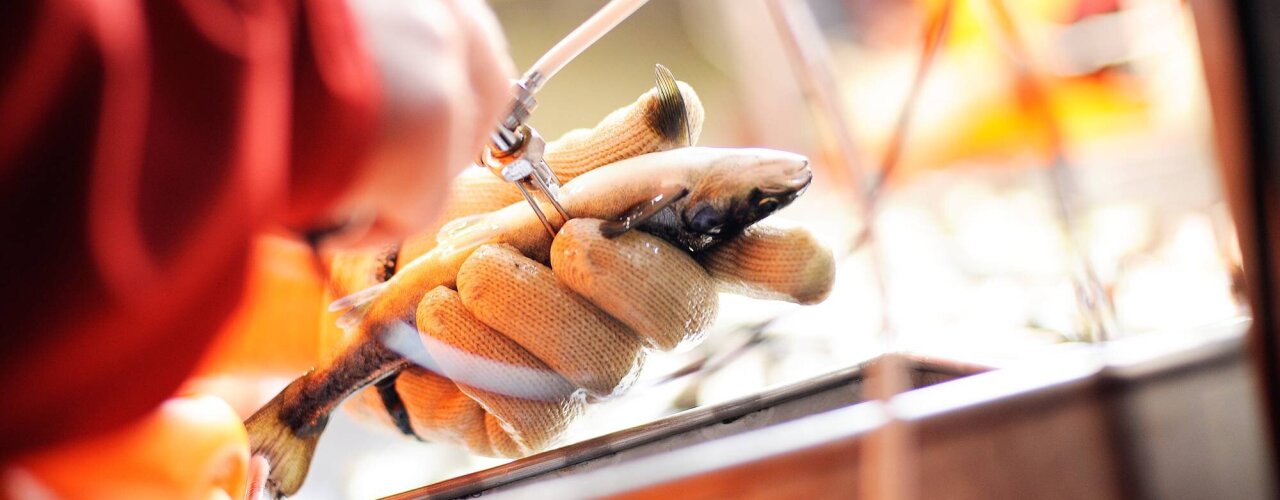According to the Aquaculture Act, farmed salmon should enjoy good health for the course of its life. Compared to many other countries, Norway has a good overview of the health of farmed fish. The Norwegian Veterinary Institute publishes an annual report on fish health in Norwegian fish farms. The report from 2015 highlights salmon lice as a particular challenge for fish health. Salmon lice are increasingly developing resistance to medication, and it is straining for the fish to undergo repeated lice treatments.
Stress
Stress also has a negative effect on fish health, as it reduces the salmon's ability to fight infections. Bad weather, changed routines, salmon lice, poor environmental conditions and transport can all make the fish stressed. Fish farmers have to take fish health into consideration in production, including during feeding and breeding.
Technological solutions
The aquaculture industry has invested heavily in developing aquaculture sites that are better for fish health. There is also a great deal of research that aims to find new methods to fight salmon lice. Read more about how the industry deals with salmon lice here.
Vaccination
All salmon in Norway are vaccinated. According to the Norwegian Veterinary Institute, today's vaccines provide generally good protection against the most important bacterial infections in salmon. Thanks to the vaccination program, diseases that used to cause high mortality, for example furunculosis, vibriosis and cold water vibriosis, are now under control. The protection against viral diseases is more challenging. Vaccine-related side effects, for example adhesion of the fish's abdominal wall and visceral organs, can occur. However, as the vaccines have improved and the required injection doses are now lower, side effects that pose a health problem for the fish are rare today.
Antibiotics in salmon
Less than 2% of Norwegian salmon have been given antibiotics. Moreover, Norwegian salmon that customers buy never contain antibiotics, and the Norwegian Food Safety Authority has also guaranteed this by testing the salmon. Antibiotic treatment in salmon production has been reduced by 99 percent since 1987. In fact, less than one percent of all salmon are treated.
According to the Norwegian Veterinary Institute, the amount of antibiotics in Norwegian aquaculture is very low. In 2018, the total sale of antibiotics to the aquaculture industry in Norway amounted to 931 kilos of active substance.
Effective vaccines and preventative measures mean that Norway's aquaculture industry uses barely any antibiotics today.
New diseases
As Norway has a relatively short history of intensive aquaculture, it is no surprise that new diseases emerge. Industry players within Norwegian aquaculture share knowledge about these diseases. It is essential that the industry and government are able to deal with outbreaks in the best possible way.
No sick salmon are released on the market. There are no antibiotics either in Norwegian salmon that are released on the market.
Useful links
The Norwegian Veterinary Institute's fish health report 2018
The Norwegian Veterinary Institute's report on the use of antibiotics in 2014 (in Norwegian only)
The world looks to Norwegian salmon to cut the use of antibiotics (in Norwegian only)
